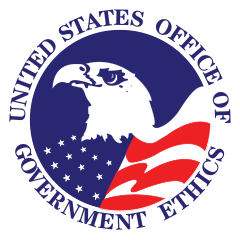September 18, 2017 •
OGE Director: Anonymous Contributions to Federal Employees’ Legal Defense Funds Prohibited
On September 15, the head of the Office of Government Ethics (OGE) said in an interview with Politico anonymous contributions to legal defense funds of federal employees are prohibited. David Apol, the acting director of the OGE, told Politico the […]
 On September 15, the head of the Office of Government Ethics (OGE) said in an interview with Politico anonymous contributions to legal defense funds of federal employees are prohibited. David Apol, the acting director of the OGE, told Politico the policy had not changed, even though the note on a guidance document had been changed earlier this year.
On September 15, the head of the Office of Government Ethics (OGE) said in an interview with Politico anonymous contributions to legal defense funds of federal employees are prohibited. David Apol, the acting director of the OGE, told Politico the policy had not changed, even though the note on a guidance document had been changed earlier this year.
In 1993, the OGE issued an opinion letter holding a fund established for the benefit of a government employee to pay the employee’s legal expenses, while administered by a person having no connection with the employee’s official duties, could accept anonymous contributions. The OGE guidance letter is not legally binding.
Walter Shaub, then director of the OGE, instructed his staff in May of this year to add a one-sentence note to the top of the document signaling the OGE’s long standing internal practice had diverged from the formal guidance, according to Politico. The note read in all caps and a red font, “NOTE: SOME STATEMENTS IN THIS OPINION ARE NOT CONSISTENT WITH CURRENT OGE INTERPRETATION AND PRACTICE.”
Subsequently, after Shaub left the OGE, the document’s note was changed to read, again in all caps and a red font, “NOTE: THE PRIMARY FINDING ABOUT THE LIMITED APPLICABILITY OF 18 U.S.C. §209 TO PAYMENTS MADE FOR AN EMPLOYEE’S LEGAL EXPENSES HAS NOT CHANGED. HOWEVER, BECAUSE EACH ANALYSIS IS VERY FACT-SPECIFIC, AGENCY ETHICS OFFICIALS SHOULD CONSULT WITH THEIR OGE DESK OFFICER BEFORE ADVISING EMPLOYEES ON THIS TOPIC.”
Critics of the note change had said this opens the door up to lobbyists and other prohibited sources funding legal defenses for employees currently working in the White House.
On July 27, a bill was introduced into the U.S. House of Representatives to prevent the firing of a director of the U.S. Office of Government Ethics (OGE) without cause. House Resolution 3462, The Office of Government Ethics Independence Act, […]
 On July 27, a bill was introduced into the U.S. House of Representatives to prevent the firing of a director of the U.S. Office of Government Ethics (OGE) without cause.
On July 27, a bill was introduced into the U.S. House of Representatives to prevent the firing of a director of the U.S. Office of Government Ethics (OGE) without cause.
House Resolution 3462, The Office of Government Ethics Independence Act, would amend federal law by clarifying that the director of the OGE may only be removed for the neglect of duty or instances of wrongdoing. It would also require the president to provide Congress with 30 days advanced notice of his or her intent to fire the director and to inform Congress as to the reasons for the action taken.
On July 19, Walter Shaub Jr. resigned as director from the OGE. Shaub, in his position as the director, had repeatedly questioned various possible conflicts of interests of President Trump and of members of the president’s White House staff. The current acting director of the OGE is David Apol, who was selected by President Trump to replace Shaub until a permanent director is announced and subsequently confirmed by the U.S. Senate.
State and Federal Communications, Inc. provides research and consulting services for government relations professionals on lobbying laws, procurement lobbying laws, political contribution laws in the United States and Canada. Learn more by visiting stateandfed.com.


